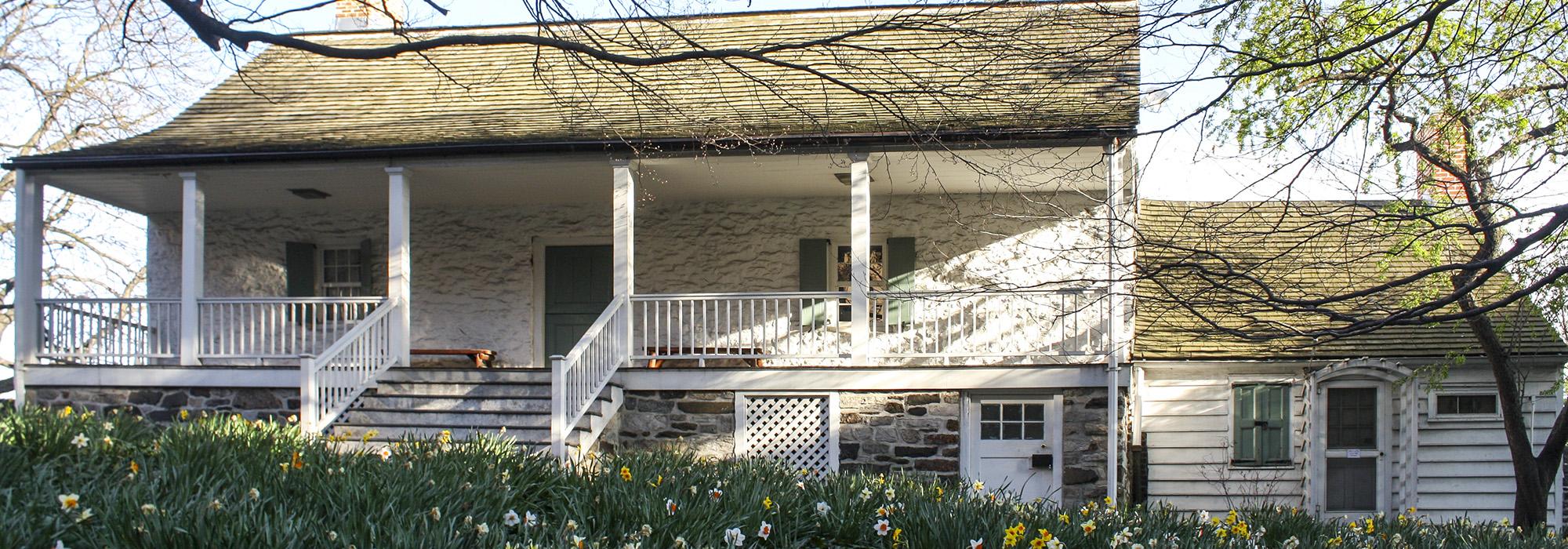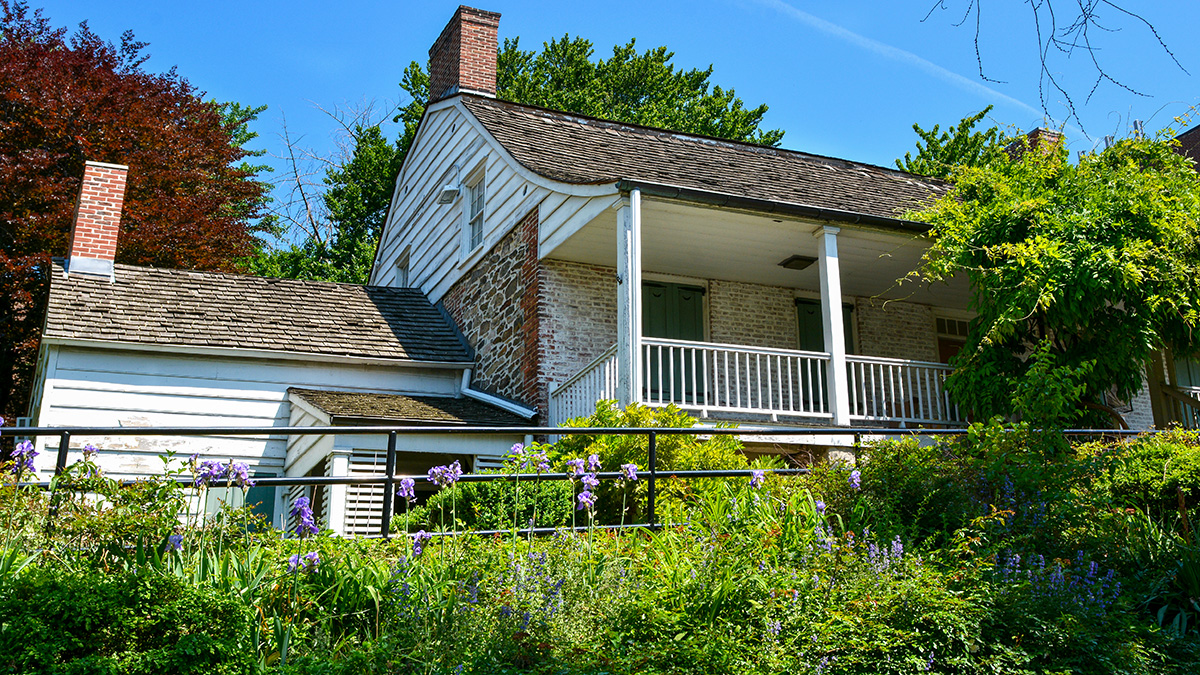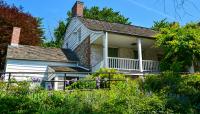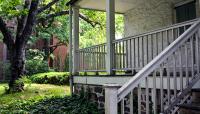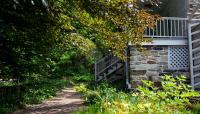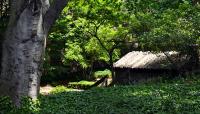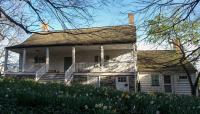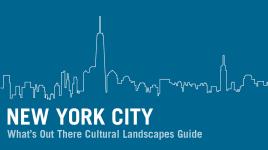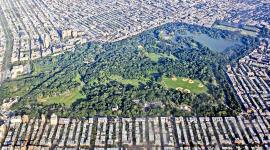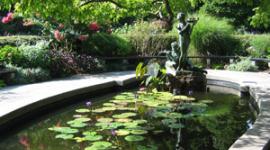Landscape Information
The last remaining Dutch Colonial farmhouse in Manhattan, this structure was built in the early 1780s on the former site of a Native American settlement and a Revolutionary War camp, and once served a farm of over 250 acres. The property has been operated as a park since 1916, the house and garden having been restored and rehabilitated as a museum under the supervision of architect Alexander McMillan Welch and donated to the New York City Department of Parks by two Dyckman descendants. The work involved the construction of a stone wall around the site and the installation of brick paths, trees, and shrubs in accordance with historic photographs. The plantings included lilacs, boxwood, hollyhocks, peonies, day lilies, Roses of Sharon, and carnations. Apple trees were planted to recall the former orchard, as was a cherry tree grafted from the last of the known Dyckman cherries, a variety cultivated on the site in the early nineteenth century. A fieldstone smokehouse and a half-timbered wood hut were also constructed in the garden. The house underwent a comprehensive restoration in 2003, and reopened to the public in 2005. The paths and formal garden edging were restored in 2007.
In addition to the house, the one-acre site includes a kitchen garden, a small formal garden, a large lawn, and a seating area. Many of the 1916 restoration-era trees and brick pathways have been retained. The house was listed in the National Register of Historic Places and designated a National Historic Landmark in 1967.



